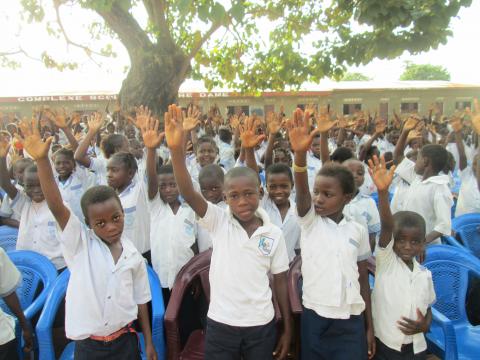An accountability toolbox for national advocates

With less than 500 days left until the deadline of the Millennium Development Goals (MDGs) it’s critical for governments to #Commit2Deliver on their promises to improve women’s and children’s health. To adequately track country progress and showcase remaining gaps, reliable data is key. But global level reporting often focuses on global and regional aggregates and overall global trends that tend to mask inequality within regions and countries. We need to track national progress using credible data in order to highlight inequity within countries, and to hold national governments to account for delivering results in order to reach MDGs 4 and 5.
By Marie Durling, Health Policy Officer, World Vision International
National governments are the ultimate decision makers with regards to investments and interventions that improve the health of women and children. We have seen how countries, including some of the poorest in the world, can achieve real progress with great political will and targeted interventions. As we near 2015, national advocates have a critical role to play to highlight their country situation – identifying where the gaps are, where investment is needed and presenting solutions for how change could happen - and hold their governments accountable for delivering on their national and international health commitments through dialogue with decision makers and increased public demand for action through awareness-raising and media outreach. For national advocates to be effective in their calls for action, they need to back up their recommendations with solid and credible data that is presented in a transparent and easy-to-read manner. World Vision national advocates in East and West Africa are using an innovative approach to highlight national progress against Every Woman Every Child commitments. This approach illustrates national government progress on commitments in a ‘traffic light’ style, using the most current data – proving to be an accessible communication style for both media and policymakers.
Countdown to 2015, a global movement spearheaded by The Lancet and including academics, governments, international agencies, donors and civil society, has been tracking and supporting country progress towards the health-related MDGs since 2005. Countdown tracks coverage of a set of key interventions proven to reduce maternal, newborn and child mortality in the 75 countries where more than 95% of maternal and child deaths occur. The movement releases a new report each year tracking national, regional and global progress towards reaching MDGs 4 and 5, in alignment with the recommendations and core indicators of the Commission on Information and Accountability for Women’s and Children’s Health. The key feature of the reports are unique country profiles, one for each of the 75 countries, presenting in one place current comprehensive data on key indicators in a way that is easy to understand, along with guidance on how to utilise the data.
The 2014 Countdown report stresses that although the MDGs spurred unprecedented action to improve maternal and child health, maternal, newborn and child mortality remains unacceptably high and globally we are off track to reach MDGs 4 & 5. Evidence shows that it took a long time before the MDGs translated into real life-saving action on the ground. We need to maintain the momentum of the unfinished business of MDGs 4 and 5 and ensure countries continue to invest in improvements for women and children during the final days of the MDGs and the first years of the 2015 framework. There should be a clear focus on implementation and tracking progress from the outset, through an established baseline and comprehensive and transparent implementation and accountability mechanisms.
The Countdown reports and country profiles are a key tool in helping governments track progress and facilitating for national advocates to hold their governments to account. Using this evidence, national advocates can urge their leaders to #Commit2Deliver on their promises for women and children by the end of 2015 – and ensure that progress in reducing preventable deaths is not halted while the new Post-2015 development framework is being negotiated and implemented. Together, we can make the remaining days in the Millennium Development Goal era and the years beyond 2015 count for women and children.